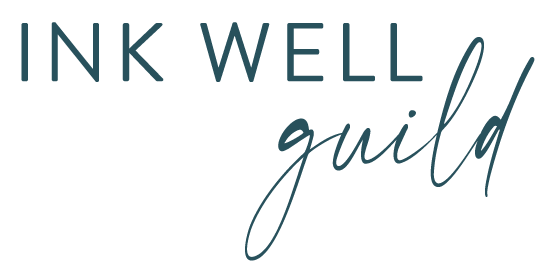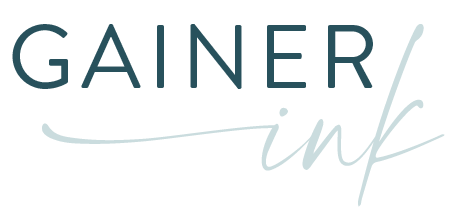As a freelance writer, you should write like the wind. Perhaps not that glamorously, but in a practical sense. Here are my 8 proven ways for writing faster.
1. Use outlines
Outlines may be the most effective tool you have for writing faster. And they’re not just for your high-school English essay. Outlines are a great way to plan out what you’re going to write ahead of time.
Then, when you have smaller chunks of time, you can just get started on a section, and not have to ponder the whole body of writing again. Time saver!
If you want to learn more about outlines, I teach about them in-depth in my course Know What To Write, at ashleygainer.teachable.com.
2. Research as you outline
As a beginning writer, just do a general outline. But as you gain more confidence, research as you outline. Practice makes perfect with this skill.
Researching as you outline helps you see if you don’t have enough or have too many sources before you get into the flow of writing. If you have too many sources, simply drop some. If you don’t have enough, you can fill in the gaps when you’re done drafting. I like to stay in writing mode once I’m in writing mode, not hop back and forth between writing and researching modes. It’s more efficient.
Be sure and come up with a shorthand code for marking the gaps, like *** or TK. (TK is short for “to come” in journalism, even though “come” starts with a “c”. Hey, I didn’t make the rules!) Just make sure it’s something that you’ll understand and notice when you come back later to fill in the gaps. You can then do a “search and find” for that shorthand code to easily go back to where you need to put your research in.
3. Don’t write for too long
If you don’t build in breaks, writing becomes a grind. You need time for mental rest. If you’re struggling with a topic, let it simmer or percolate in the background of your brain while you do something else.
Take a break. Go to bed. Do something mindless. You just can’t ram out creativity. Despite the myth, even Jack Kerouac took breaks from his final result!
4. Sit up
Slumping leads to soreness, spasms, and strains (oh, my!). Not to mention carpal tunnel syndrome. And if your body hurts, your brain’s likelier to turn to mush.
So use good posture, and be able to move around, either while you’re sitting (wiggle, wiggle), or stretch every half hour. Ergonomics matter. But be comfortable. A change of scenery is fine; you don’t have to be in your “writing office” all the time. Sometimes I sit on the floor.
5. Improve your typing speed
I usually type about 93 words per minute, and my fingers can almost keep up with my brain. Hunting and pecking for keys on the computer is going to slow down your writing output tremendously.
So practice your typing. You can do typing drills and take free online typing tests. Then come flex on me with your typing speed.
6. Don’t edit as you write
The goal of your first draft is to get everything out of your brain and onto paper/the computer screen. But it will be crummy. Embrace the imperfection.
You have to relinquish the idea of a perfect first draft in order to hush your inner critic and improve your speed. Just write. Accept your lame first draft. You’ll edit it later. Proper grammar and paragraph length can wait. Get your thoughts out.
7. Focus on the outcome
Freelance writing is your path to freedom. Instead of viewing the writing work that comes with it as a chore, focus on why you are doing it. My reason is to be able to stay home with my kids while still providing an income. Yours may be different.
But don’t rely on motivation or the desire to do work. That’s a feeling that will quickly fizzle out once the going gets a bit tough. For more on motivation and freelance writing, see my post “How to Find Motivation as a Freelance Writer.”
8. Put it on the calendar with a time limit
Mess with the laws of time and space! Sort of. But the only way that my emails, blog posts, podcast notes, course lessons, etc. ever get written with any speed is by setting a time limit, giving a deadline, and putting it on my calendar.
For example, I give myself 30 minutes to do a podcast episode. If I go over, I know I’m taking time away from something else, which I can’t afford to do. It keeps me accountable.
The more you can condense the time it takes you to write stuff, the better off you’re going to be. So set limits for yourself and then hold yourself to those limits. Put them on the calendar and have a reminder, or set a timer so that there is something that dings at you when it’s time to move on to the next event.
Clips Camp (and discount for Know What to Write)
If you need help getting great writing samples for your portfolio, I have a course called Clips Camp.
It’s a three-week course for new and advanced new freelance writers who want to get started with high-paid client work. If you’re on Upwork or Fiverr and miserable, if you haven’t even done anything to get started and you don’t know what the first step is, then Clips Camp is for you.
I teach you how to put together a solid portfolio of writing samples that position you as the kind of awesome writer that awesome clients want to hire. If you want in on that or you just want more information, go to clipscamp.com.
And there’s a discount in Clips Camp for my Know What to Write course. Sweet!





